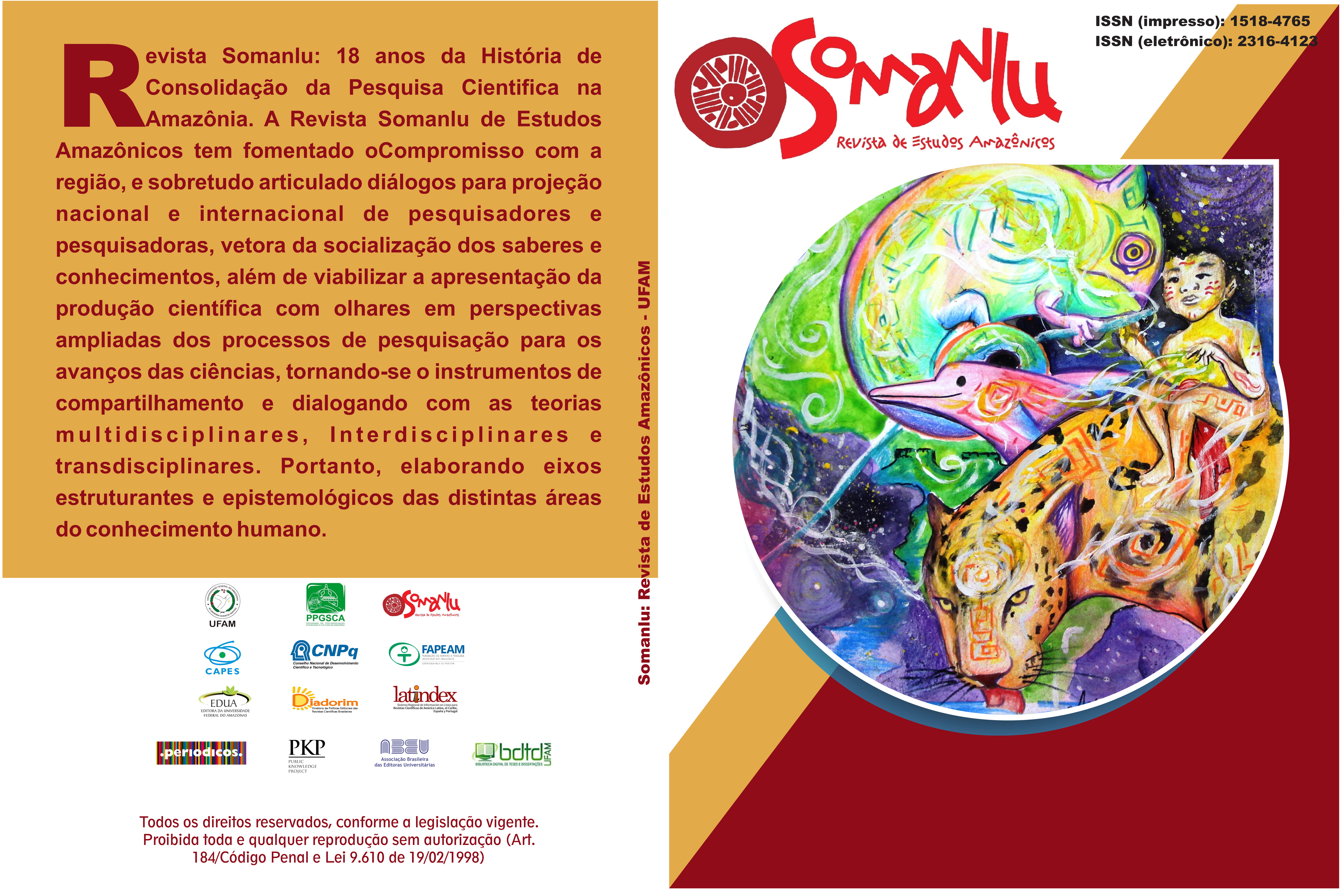In search of the origins of human beings in the American continent
A case study
DOI:
https://doi.org/10.29327/233099.18.1-2Keywords:
Povoamento do continente americano, Arqueologia, Análise do discursoAbstract
This work aims to investigate the origins of human beings in the Americas, considering three main perspectives on settlement: a) fundamentalist Christian religious discourse; b) discourse about ancient peoples; c) scientific discourse based on archaeological data and remains. The main justification arises from the importance of highlighting the search for the settlement routes of the first human groups in the Americas, in order to demonstrate the various possibilities and not focus solely on settlement via the Bering Strait in the northern part of the Americas.
Downloads
References
ARAÚJO, Adauto; FERREIRA, Luiz Fernando. Paleoparasitologia e povoamento da América. In: Fumdhamentos - Revista da Fundação do Museu do Homem Americano. São Raimundo. Vol 1, nº 1, 1996, p.105-114.
ARAÚJO, Adauto G.; GONÇALVES, Marcelo; FERREIRA, Luiz F. Migrações Préhistóricas e paloeparasitologia. SILVA; Hilton P.; RODRIGUES-CARVALHO, Claudia. In: Nossa origem: o povoamento das Américas, visões interdisciplinares. Rio de Janeiro: Vieira & Lent, 2006.
BAHN, P.; REFREW, C. Arqueologia: Teorias, métodos y practica. Madrid: Akal, 1993.
BELTRÃO, Maria da Conceição. A região arqueológica de Central, Bahia, Brasil: A Toca da Esperança, um sítio arqueológico do pleistoceno médio. In: Fundhamentos. Revista da Fundação do Museu do Homem Americano. São Raimundo. Vol 1, nº 1, 1996, p. 115-146.
Carta Pero Vaz de Caminha ao Rei Dom Manuel sobre o achamento do Brasil. São Paulo: Editora Martin Claret, 2002.
COUTINHO, Reinaldo. Desvendando Sete Cidades. Teresina: Edições Tur-Troya. 2000.
DILEHAY, Tom D. Uma sinopse do registro arqueológico de Monte Verde. Fumdhamentos. In: Revista da Fundação do Museu do Homem Americano. São Raimundo. Vol 1, nº 1, 1996, p.147-151.
FUNARI, P.P.A. & NOELLI, F.S. Pré-História do Brasil. São Paulo, Contexto, 2002.
FUNARI, P.P.A. Resenha de Fundamentalismos, de Pedro Vasconcellos, Revista Estudos de Religião, 3, 2009, 124-126.
GASPAR, MaDu. Sambaqui: Arqueologia do litoral brasileiro. Rio de Janeiro: Jorge Zahar Editor, 2004.
GUIDON, Niède. Reflexões sobre o povoamento da América. In: Dedalo, nº 23, 1984, p.153-156.
GUIDON, Niède; DELIBRIAS, Georgette. Carbon – 14 dates point to man in the Americas 32,000
years ago. Nature, London, vol. 321, nº 6072, 1986, p.385-408.
GUIDON, Niède. O Pleistoceno no Sudeste do Piauí. In: Anais I Simpósio de Pré- História. 30, 30-3 ABR. Pernambuco, 1991. p.17-19.
GUIDON, Niède. A maior concentração de pinturas rupestres do mundo está no Piauí. In: Sapiência, Ano 2, Nº 5, 2005, p.6-7.
HARDEN, Donald. Os Fenícios. Lisboa: Editora Verbo, 1971. p.170-188.
LAMING-EMPARIE, Annette. Problèmes de Préhistorie Bresilienne. In: Annales: Economies, Societes et Civilisations, Paris,1973 b. p.229-254.
LAMING-EMPARIE, Annette. L´Archaeologie Prehistorique. Paris: Editions du Seul, 1973a.
LAMING-EMPARIE, Annette. Le plus ancien peuplement de l´Amérique. In: Bulletin de la Societé prehistorique française, nº 73. (CRSM 9), 1976. p.280-287.
LAMING-EMPARIE, Annette. Le problème des orgines americaines: theories, hypothèses, documents. Paris: Editions de la maison des sciences de l´homme, 1980.
LAVALLÉ, Daniele. Promesse d´Amerique: La prehistoire de l´Amérique du Sud. Pairs: Hachette, 1995. p.9-137.
MACNEISH, Richard. Provas Pré-clovis de pendejo e suas implicações. In: Fumdhamentos – Revista da Fundação Museu do Homem Americano. São Raimundo Nonato (PI). 1996, p. 171-200.
MARTIN, Gabriela. A Pré-história do Nordeste. Editora UFPE: Pernambuco, 1996.
NEVES, Walter. Origens do homem nas Américas: fósseis versus moléculas. In: SILVA; Hilton P.; RODRIGUES-CARVALHO, Claudia. Nossa origem: o povoamento das Américas, visões interdisciplinares. Rio de Janeiro: Vieira & Lent, 2006.
PROUS, André. Arqueologia Brasileira. Brasília: Editora Unb, 1992.
PROUS, André. Arqueologia, Pré-história e História. In: TENÓRIO, Maria Cristina (org). Pré-história da terra Brasilis. Rio de Janeiro: Editora UFRJ, 1999.
PROUS, André. O Brasil antes dos brasileiros: a pré-história do nosso país. Rio de Janeiro: Jorge Zahar Editor, 2006. p. 7-32.
RIVET, Paul. As Origens do Homem Americano. São Paulo: Editora Ahembi, 1960.
RUIZ, Felipe Gonzalez. Evolucion de la Cultura en America. Madrid: Ediciones Sapientia, 1953.
TODOROV, Tzvetan. A Conquista da América: A questão do outro. 2ª Edição São Paulo: Martins Fontes, 1999.
TRIGGER, B. História do pensamento arqueológico. São Paulo: Odysseus editora, 2004.
Vasconcellos, P. Fundamentalismos. São Paulo, Paulinas, 2008.
Downloads
Published
How to Cite
Issue
Section
License

This work is licensed under a Creative Commons Attribution 4.0 International License.
A Somanlu: Revista de Estudos Amazônicos faz uso de licença Creative Commons de atribuição (CC BY 4.0)





